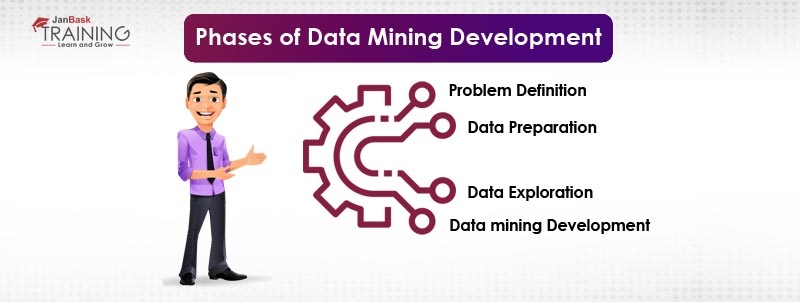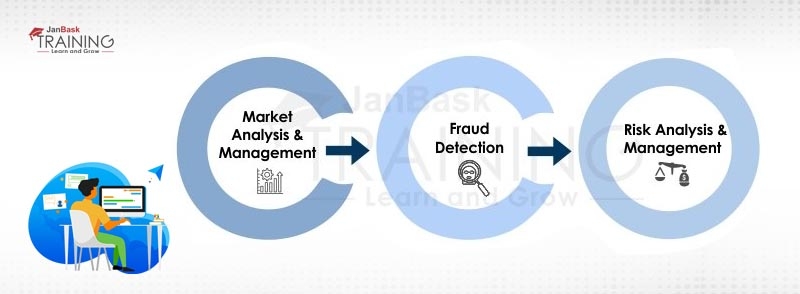19
SepGrab Deal : Upto 30% off on live classes + 2 free self-paced courses - SCHEDULE CALL
Endlessly looking for what is the use of SQL for data mining or data mining SQL queries? If yes, then the following article is here to put a stop on all your searches. In the following, you will get briefs about what SQL data mining is or what are the few data mining SQL queries. Let’s begin...
As per Wikipedia “Data Mining is the process of discovering new patterns from large data sets”. Now for beginners, the big question is how data mining in SQL is different from a normal database. In a database, usually the data is stored and accessed but that is not in the case of data mining SQL. Now you may think that what is SQL data mining or why SQL for data mining?The continuing post has all the detailed explanations of what is data mining in SQL server.

The database is also a key part of data mining but here “Knowledge Discovery in Database” is the process that is followed in data mining. This KDD or Knowledge Discovery in Database process can be divided further into five steps:
Here, among these steps, every process contributes to the complete data mining cycle. Here ‘Selection’ step involves data selection while pre-processing means cleansing of data, transformation involves data preparation and data mining is performed on this data to produce relevant information which is evaluated later.
Learn SQL Server in the Easiest Way

Here in this cycle, we have used the word Knowledge in KDD, not data or information as there are differences in these terms. As a result, data mining is not the plain information or data instead this is a result of processing information. Data mining is all about discovering“new”patterns from the existing data and dealing with predictive analysis.
Read More: MSBI Tutorial
Association rules are created by analyzing data and most important relationships are created to locate important relationships within the data. Here two terms Support and Confidence are used, in which Support represents the frequency of data item appearance and confidence means the total number of times if/then statements are used in thedata processing.

Other parameters of data mining are Path Analysis, Sequence, Clustering, Classification, and Forecasting. Here Path Analysis parameter looks for patterns or sequence of events. Sequence signifies an ordered list of items, it is found in many data structures of a database. The Classification parameter looks for new patterns and can result in a way in which data is organized. Classification algorithms can predict the variables within the database.
Clustering parameter cluster or group the documents of the fact that were previously not known. A set of objects are generally grouped in clustering that is then aggregated as per their similarity with each other. Forecasting parameter can discover patterns in data mining that can result in reasonable predictions for thefuture, it is also known as predictive analysis.
Read: What Does SQL Stand For? Learn About SQL Queries, Joins & Commands
In many research areas, the techniques of data mining are used that include genetics, cybernetics, mathematics, and marketing. Organizations use data mining techniques to predict customer behavior and to drive efficient results usually. By using predictive analysis techniques,businesses can even set them apart from their competitors.
Read More: SQL Server Interview Questions
Web mining technique is usually used in CRM in which information is integrated and gathered in the traditional way by using old data mining techniques over the web. The main aim or objective of web mining is to understand customer behavior and to know and evaluate the effectiveness of a particular website.
One another data mining technique is network approaches. This approach is based on multitask learning and is used to ensure parallel and scalable data mining algorithm execution and mining of large databases. Machine learning is also a tool for data mining and is used to design specific algorithms that are used to learn and predict the behavior of data.
SQL Server Training & Certification

Several phases are involved in data mining technology and each phase of data mining has a different purpose and is considered for that specific purpose only.
Below listed are the phases of the complete process of the Data Mining Development.

Problem definition is about defining the problem for which you are using data mining and you must also know what type of relationship you want to get through data mining. Your problem must reflect your business policies and processes. You must know whether you are using a data model for any prediction or to get any association or pattern among data sets.
Read More: Average Salary of SQL Server Developer
In the case of prediction, you must know about which attributes you want to know? Table relationship must be specified and you must know whether you need any aggregation, processing, and cleansing to make data usable.
Data can be unstructured and scattered, so you must know where data is located exactly and in which format. If there are any inconsistent or missing entries then you should priorly know about it. Data cleaning does not refer to the deletion of any inappropriate data or to populate the missing values. Data cleansing establishes a relationship between data values and to identify the exact data source. In the case of tables, you must know which column should be used. You can also use data preparation tools here that can be SQL Server Integration Service, Data Quality Service or Master Data Service.
Read: Top 50 DB2 Interview Questions and Answers for Freshers & Experienced
At the time of the mining model, you must have the idea of your data. The techniques that are used for exploration are minimum and maximum value calculation, standard deviation calculation and to look for data distribution. It can provide stability information and accuracy of the result. Here, the large standard deviation signifies that you must use more data to improve the data model.
Columns for mining structure must be specified. This structure must remain empty until processed data fills the structure. On mining structure processing statistical information is generated that can fill the tables. Model processing is also known as training that is about applying specific mathematical algorithms to the data to identify exact patterns.
Read More: How to install Microsoft SQL Server Express
Patterns that are found in training depends on data selection for the training process. Many different algorithms are used in SQL Server 2016 that can create a different model. Data Mining Wizard can also be used to create any specific and pre-defined data model.
Today, data mining with SQL techniques are being used by many organizations and have a vast area of application. Following domains are mainly using data mining SQL queries:

If we talk about SQL for data mining techniques for marketing analysis and management, there it helps in customer profiling and customer requirement identification. Cross-market analysis can also be performed through its result and target marketing can be done with the help of clusters that are created through data mining. Customer purchasing patterns can be identified and the summary can be provided.
Read: How To Differentiate SQL Server JOIN, IN And EXISTS Clause?
Credit card and telecommunication service frauds can be identified through data mining. If we talk about telecommunication fraud identification then duration, destination and day and time of any call can be easily identified. Patterns that deviate from expected norms can be identified. The corporate risk related to resource planning, competition and finance planning, and asset evaluation can be analyzed and managed through data mining.
Read More: Microsoft Azure Tutorial Guide for Beginner
So this was the complete guide on data mining with SQL server.
SQL Server Training & Certification

Finally, we can say that data mining is not only about storing data and information. It can help the organizations ease the decision-making process by providing timely and managed information. Various data mining tools are used to execute the steps that are related to data mining. Data patterns can reveal much information about the data patterns. That’s all for the day. If you want to explore more about SQL data mining, then start the Data analytics course at JanBask Training right away.
Read: Difference Between Clustered and Non-Clustered Index in the SQL
 Pinterest
Pinterest
 Email
Email
The JanBask Training Team includes certified professionals and expert writers dedicated to helping learners navigate their career journeys in QA, Cybersecurity, Salesforce, and more. Each article is carefully researched and reviewed to ensure quality and relevance.

Cyber Security

QA

Salesforce

Business Analyst

MS SQL Server

Data Science

DevOps

Hadoop

Python

Artificial Intelligence

Machine Learning

Tableau
Search Posts
Related Posts
Receive Latest Materials and Offers on SQL Server Course
Interviews